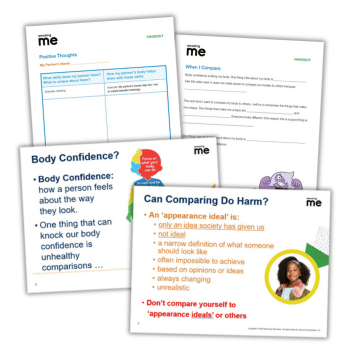My NQT Year Nearly Broke Me

Focusing on progress at all costs leads to classes being led by diminished teachers, hanging on by their fingertips

- by Teachwire
- Classroom expertise and free resources for teachers

I didn’t need to call my wife to tell her why I was late home from school; she already knew. She knew my school closed its doors at 6:30pm. She knew that the drive home should get me back in time to put the kids to bed. She knew I was waiting until they were already asleep. She knew I was parked up in a lay-by. She knew I was crying.
It was my NQT year, my year-of-not-coping and the year that nearly broke me as a teacher, a parent and a person.
I was late to becoming a primary school teacher; abandoning a career in management in my early thirties to do something a little more worthwhile. My wide-eyed optimism and desire to make my work mean something had seen me join a school that was a perennial underachiever with years of sub-standard SATs results and harsh Ofsted judgements behind it.
But it wasn’t a school anymore, it was now an academy! I was part of the bright eyed vanguard of new teachers who would sweep in and lead the school to a glittering future. Onwards!
The pace was furious; every lesson differentiated at least four ways; four sets of books marked with follow up comments every day; children individually challenged based on their target objectives; two staff meetings a week; mentor meetings… I could go on.
The first thing to go was sleep. I set my alarm for 5am anyway so I could get up and do a little work each morning before heading in, but soon I was waking up at 4am with work on my mind.
A little after that it would be 2am, with guilt consuming me. Before too long I was barely dozing to midnight before the panic overtook me.
I would talk to myself in the early hours, plagued with worry at the books I’d not marked, the lesson I’d not planned in triplicate, the assessment I’d not managed to complete. Sometimes my wife would wake and we’d talk it through. Sometimes she wouldn’t and I’d lie there staring at the ceiling and muttering at the darkness.
Despite my fitful sleep and creeping exhaustion, I was doing an excellent job of lying to myself that everything was fine. The NQT year was meant to be hard, everyone says the first term is the hardest and if you can get through that – if you can just get through that – it’s all downhill from there.
I was a coper. I’d had a stressful career before retraining as a teacher, I could do this.
I started to doubt I could do this on a drive to work one day. Turning left off the roundabout took me to my school. Except I wasn’t taking the exit. Twice around the roundabout. Three times now. More times than I could count and I couldn’t bring myself to take the road into school.
What was wrong with me? I might recognise the breathless signs of a panic attack now, but this was uncharted territory for me. I didn’t recognise this guy who was scared to go and stand in front of a class of 30 children.
In truth, it was never the children that were the issue – if you don’t fundamentally enjoy spending time with kids then you really are in the wrong profession. The expectations that were breaking me came from an SLT that expected to see progress happening in every lesson, every day, in every way. It was an impossible target to meet, but the pressure to do so was enormous. If you didn’t meet their exacting standards it wasn’t just a professional failing, you were wrecking the life chances of these children. You were letting them down because you weren’t enough of a man to break yourself in their service.
I was desperate to make it to half term, to have some respite from the grind. I nearly made it too, but a week before the holidays I found myself sat in my front room, having not slept at all, unable to catch my breath and sobbing uncontrollably. As I lost all sense of reason I started to hit myself, slaps to the face and knuckles to the skull. Anything to stop the tears, to shock some semblance of me back into this wreck of a person.
When my wife saw me that morning she thought someone had died. She wasn’t far wrong.
It seems unbelievable to me now, but I headed into work that fateful morning.
I’d taken books home. I’d been up all night marking them. The children would suffer if they didn’t respond to my comments! I think I just about made it to my classroom before the tears started to pour again. I was discovered first by my Key Stage leader, then by my deputy, then by my headteacher. I was sent home. I was signed off. I was put on antidepressants. I was ashamed. I was a failure.
I only knew one solution for this destruction of my self-esteem; I needed to get back to work as soon as possible.
The children’s learning was suffering without me (lest you think this hysteria, my time off was explicitly cited as a reason for a lack of pupil progress when I was hauled before the entire SLT upon my return).
Though I was resolved to make it through the year, my card was now marked. I was one of those flaky teachers, the type that had been swept away when the academy’s sponsor had dispatched 14 teachers the previous summer. Judgements on my teaching became more negative as goalposts forever moved; book scrutinies became more onerous as each week bought a new marking code to be deciphered; support plans were drawn up with targets that could never possibly be met.
Crying in front of my colleagues was one thing. Crying in front of my class regrettable in the extreme. Crying in front of my own children? How could I let them know that Daddy not only wasn’t superman, he actually wasn’t much of a man at all?
And so it came to pass that my every working day ended in a litter strewn lay-by off an anonymous A-road as I sat crying and waiting until my young family was safely in bed. Once I thought the coast was clear, I would creep in, argue with my wife, then spend all evening working. I finally conceded defeat once and for all at Easter. It wasn’t that I was broken again, it was that I hadn’t really put myself back together after last time. I embarked on some cognitive therapy to try and help me better understand the stresses that brought me so low. A moment of clarity arrived one day when my therapist looked me squarely in the eye one day and said, “Mate, you just need to get a new job.”
He wasn’t wrong.
A change of school saw me successfully complete my NQT year just one term late and I’ve only flourished from there. And you know what? So have the children that I’ve been lucky enough to teach in that time. Releasing me from that suffocating pressure allowed me to really get to know my pedagogy, my strengths and the children I was charged with educating. A teacher’s mental and physical wellbeing is a resource and, like every resource, it can be depleted. If we allow schools to become focused on progress at all costs, it will only lead to classes being lead by diminished teachers, hanging on by their fingertips, and stuck circling that roundabout, wondering if they really are going to be able to cope today or not.
The writer is a UK primary teacher. This blog post was in response to a teacher mental health survey we ran in conjunction with Leeds Beckett University. Find out more and see the results here.










